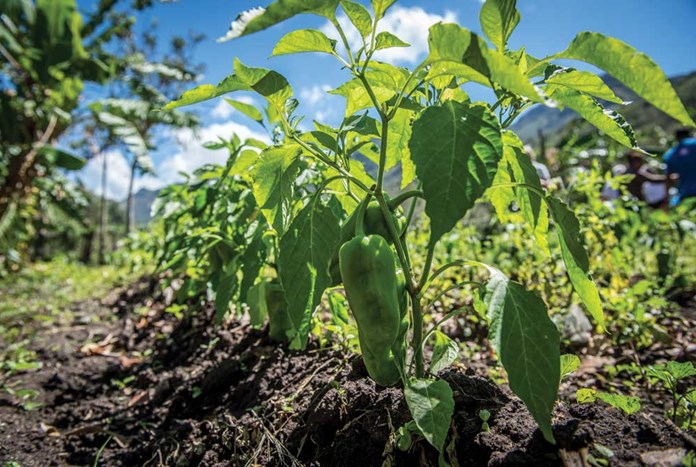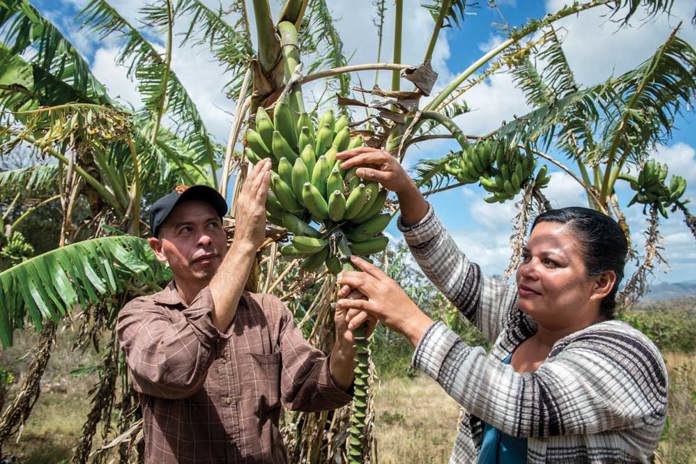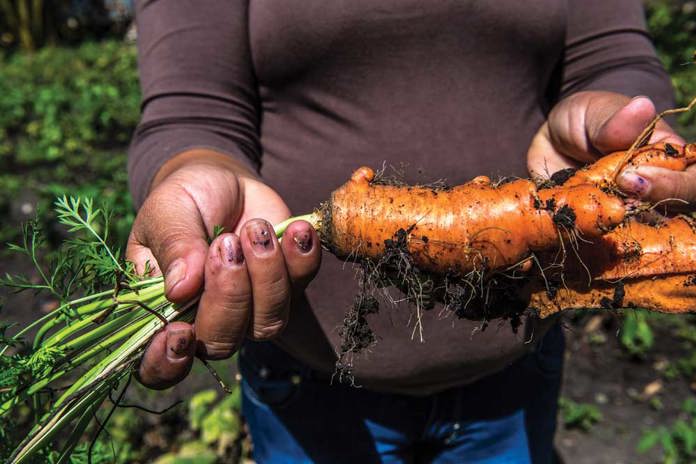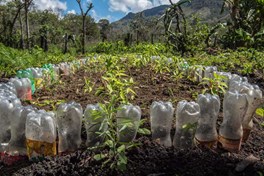Friday 15th March 2019 Christchurch, New Zealand
Following the terrorist attack in Christchurch, New Zealand on 15th March 2019 where fifty people were killed, Australian author, speaker and social activist wrote these words.
"Through this programme, CEPAD partners with rural Nicaraguan villages for 5 years of training, which focuses on supporting the community in the areas that they identify as most important for their development." Fresh from an Amos visit to Nicaragua, Katie Hagley writes about how the community of Teustepe is flourishing.

We are now 3 years into our 5-year cycle of support for CEPAD's sustainable community development programme. During this time we have talked a lot about ‘walking alongside’ these communities.
So it was great to have the chance to go out there last month with trustee Peter Bone and 18 supporters to see the developments being made and to ‘work alongside’ the communities — digging microdams, moving stones and doing a spot of gardening.
Through this programme CEPAD partners with rural Nicaraguan villages for 5 years of training, which focuses on supporting the community in the areas that they identify as most important for their development. The work is about empowerment and training at a local level, particularly among women.

Beginning to flourish
Three years in and Teustepe is really beginning to flourish, with 9 projects being approved by CEPAD's Community Leadership programme. Photograph: © Amos Trust/Clive Horsman 2018
Meet Secorro and her husband Isabel — they have 4 daughters aged 5, 9, 14 and 18 and live in La Joya, Teustepe. They rely on their small plot of land to produce their main source of food. Like many other families in Teustepe, drought brought on by lack of rainfall, together with infrequent but torrential downpours, meant they were extremely vulnerable to losing their annual crops. During our visit, CEPAD was helping to build a ‘microdam’ in their garden and our team was delighted to help.
CEPAD has helped us hugely in La Joya and we have seen great change — especially the women. Before we did not know how to grow plants and run family gardens and we have also learned to cook differently. Now we can move forward.”
Secorro
Microdams are built using simply available resources. It means digging a hole close to your house and lining it with plastic sheeting. It then acts as an excellent mini reservoir by being connected to guttering which captures run-off from the roof, making use of any rain which does fall. For Secorro, it is an essential store of water she can use to irrigate the family garden as well as for washing.
The training Secorro has received from CEPAD has brought new life to her plot of land and has also meant that she is now learning about how to plant a wider variety of fruits and vegetables, which can improve the soil and the family’s diet.
“Now we grow tomatoes, papaya, pineapple, Yukka, peppers, watermelon, we did not know how to grow these before. We have learned so much.” Another significant part of CEPAD’s training is to teach people new recipes and ways of cooking with these new vegetables and fruits.

New crops
"If I receive training and do not pass it on, then what am I doing? Nothing.” Rosa — Teustepe, Nicaragua Photograph: © Amos Trust/Clive Horsman 2018
If you look through the achievements in CEPAD’s annual report (see the bullet points below), you’ll see that one of the wonderful things about their model is that it encourages those who have been trained to pass on their training. So training just one person can mean eventually you’re training a whole community.
Rosa, another community member made this point clearly: “If I receive training and do not pass it on, then what am I doing? Nothing.” Meanwhile, Secorro has also attended workshops to learn how to make different handicrafts and traditional sweets which she can sell in the village. And some of us were lucky enough to learn how to cook the delicious fudge-like sweets. Yum!
The training Secorro has received from CEPAD has brought new life to her plot of land and has also meant that she is now learning about how to plant a wider variety of fruits and vegetables, which can improve the soil and the family’s diet.
“CEPAD has helped us hugely in La Joya and we have seen great change — especially the women. Before we did not know how to grow plants and run family gardens and we have also learned to cook differently. Now we can move forward,” said Secorro.
Just a few of the achievements this year — taken from CEPAD's annual report
During our visit, it was wonderful to see the progress that the 7 communities have made since our last visit in 2015 and CEPAD’s annual report gives even further evidence of their success. Here are just a few of the achievements in the last year.
A great deal of CEPAD’s work involves teaching communities to speak to the local authorities and the confidence to demand their rights. As a result over the past year, 9 projects have been approved by the municipal authority including food packages for senior citizens, electricity for 20 homes, two water reservoirs, repair of 5kms of road, installation of 10 water metres and roofing for 28 homes.
To find out more about how Amos is supporting communities in Nicaragua and how you can get involved, please visit amostrust.org/water-for-life
Links: CEPAD

Welcome to the first On Her Terms update of 2019. This year marks 30 years since the UN Convention on the Rights of the Child. This landmark in children’s rights has remained a hugely important reference point for those working for justice for children and young people.

“Climbing Kilimanjaro has been on my bucket list for some time. At 5,895 metres it is both the highest mountain in Africa and the highest free-standing mountain in the world.” Neil Irving writes about ticking-off one item from his bucket list to raise funds for Amos Trust.

18-year-old Millie Rose, who first visited Nicaragua in 2015, is spending 4 months working in CEPAD’s office before starting an International Development course at University. We asked her to share a little about her impressions of CEPAD’s work — particularly after the recent flooding and unrest.

“I’ve been guilty over the last few months of shirking my responsibilities towards a cause that is very close to my heart. On the eve of International Day of Solidarity with the Palestinian People, I’ve decided to renew my commitment to this cause, to seeking justice and equal rights for everyone who calls the Holy Land home.” Sarah Baron writes about how we can reinvigorate our support for Palestine.

“The idea was beautiful and crazy. The logistics alone would be an organisational nightmare. The risk assessment would run for pages. It would be a five-month, 3,300 kilometres trek across eleven countries with mountains, rivers and seas to navigate. And then there was no guarantee that the walkers would even be allowed to cross the border into the occupied West Bank, let alone reach Jerusalem.” Amos trustee Robert Cohen writes the forword for ‘Walking To Jerusalem’ – Justin Butcher’s book about his experience of walking from London to Jerusalem as part of Amos Trust’s ‘Just Walk To Jerusalem’ project in 2017.
Amos Trust
7 Bell Yard, London
WC2A 2JR
UK
Telephone:
+44 (0) 203 725 3493
Email:
[email protected]
Registered Charity No.
1164234

This item has been added to your shopping basket. Please click on the Checkout button below where you can choose your quantity.
Continue shopping Checkout Close